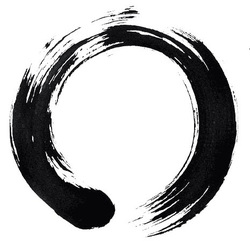
““I see nobody on the road,” said Alice.
“I only wish I had such eyes,” the King remarked in a fretful tone.
“To be able to see Nobody! And at that distance too! Why, it’s as much as I can do to see real people, by this light!”” [1]
Well, the King, and we all, should look twice.
What is not there may be, in practice, as important as that which is; at times even more important for what we feel, think, decide and do;
For two reasons:
- first, because objects missing, persons absent, vacant space, which are not physically present entities to be observed, weigh heavily in our real life; moreover, needs neglected, likely events not taking place, the things which we do not say or do not do, the ones from which we abstain or the ones we neglect or fail to do, count.
- second, because that which is vacant, unfilled, not sated, not yet started, not frozen in the irremediable past, still without form, everything still potential, hides – like infinity –more possibilities than that which is formed, taken and completed.
Good sens would say and it even stands to reason that we should mind carefully both presence and absence, both the full and the empty, positive action and negative conduct, to understand, to decide and to make things happen or to prevent them. Why is this so methodically ignored in our Western civilisation?
Shapeless content and empty form hide rich potential.
*
This may look like some far-fetched playing with words but is in fact very practical, as all good theories are [2].
In my life as an advisor, I learned to ask such surprising questions to detect the significant things which were not there but counted:
- What should be here and isn’t? What did I expect to find here and do not see?
- Is there sufficient space to move and do this? Sufficient intervals to allow coexistence of differences? Sufficient pause to think?
- Beyond things pressing to do, what is urgent to abstain from? The priority is to act or to wait?
- This being what is conspicuously allowed and recommended and this, what is forbidden here; what is then not forbidden, omitted from instructions or implicitly allowed? What escapes attention? Where are the loopholes for possible action?
- This being usually remembered what was curiously forgotten? What is ignored and in denial?
- I see here yet another case of the king being naked; why is nobody saying so? What else is unsaid or silenced?
- Is there some uncharted territory - around or elsewhere - which we can put to use? Is all space taken?
- How narrow is the box in which these people live, in which the problems are defined as impossible to solve and opportunities absent? Could we consider a wider horizon? In fact what can I imagine *from nothing*, what could to be here which isn't now? Something that I could bring from far away?
- ...
Other people, no doubt serious - and usually more competent than I in their discipline - come and look carefully at precisely what is present; they are very good at that, the experts, separating opinion from fact and discarding opinion and absence as if they did not count.
The experts at establishing how things really are, are often chained to what is given and less prone to think of making things to be as we want them to be. They itch to measure. do and to fix. Such people are quite bad at considering the not present but important, the invisibles, the hollow, the not done, the ignored, the forgotten, the unusual but not impossible, or simply the loopholes. They are extremely poor at working constructively with "negatives" like ignorance and misunderstanding, bad feelings, instituted error, unsatisfied desires and the like. They cannot prescribe - when needed - to do nothing, to leave things alone and wait; to let happen and to let live. Maybe this is the tragedy of the professional advisor; the client wants to measure and pay for what you do, being not subtle enough or not empowered to pay the preventing of bad loss to happen before it becomes visible.
*
It was very well said that "Not everything that can be counted counts, and not everything that counts can be counted.”[3]
We may need to redefine intelligence -instead of believing that it is perfect reasoning towards the right answer to problems as given - rather as an ability of doing something else: preventing bad things to arise, of not doing errors amidst complication, of halting the doing of them when they occurred. Evading some given problems instead of persevering and multiplying them, of going around obstacles instead of clashing with them, not acting when it is not needed and of allowing things to happen... or is that wisdom rather than mere intelligence? I'm joking, of course it is!
Read more if you want...
--------------------------
[1]Carroll Lewis, THROUGH THE LOOKING GLASS AND WHAT ALICE FOUND THERE, Macmillan, N.Y., London 1899 ]
[2]Lewin Kurt, “The Research Center for Group Dynamics at M.I.T.” Sociometry 8 (1945), p.128
[3]"Not everything that can be counted counts, and not everything that counts can be counted.”- Quote Investigator comments suggests crediting William Bruce Cameron instead of Albert Einstein. Cameron’s 1963 text “Informal Sociology: A Casual Introduction to Sociological Thinking” contained the following passage “It would be nice if all of the data which sociologists require could be enumerated because then we could run them through IBM machines and draw charts as the economists do. However, not everything that can be counted counts, and not everything that counts can be counted.” [WCIS] 1963, Informal Sociology, a casual introduction to sociological thinking by William Bruce Cameron, Page 13, Random House, New York.
 RSS Feed
RSS Feed